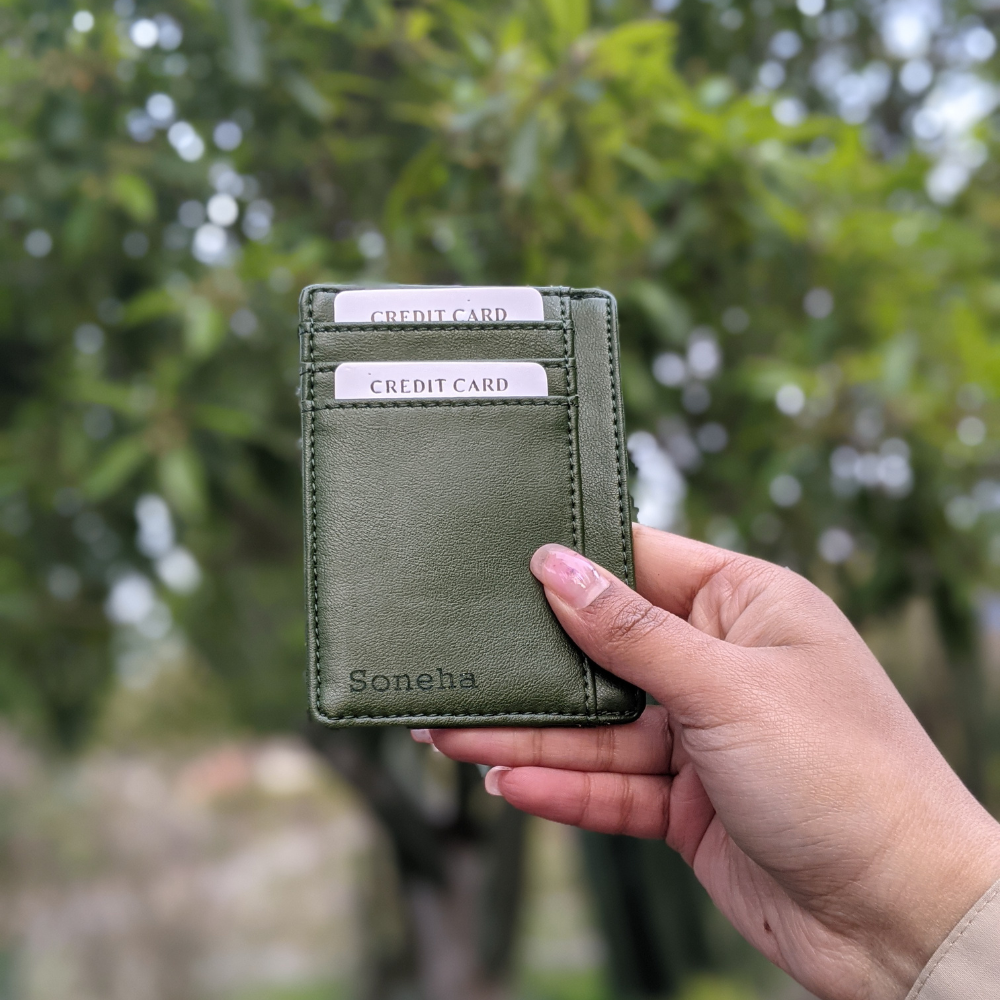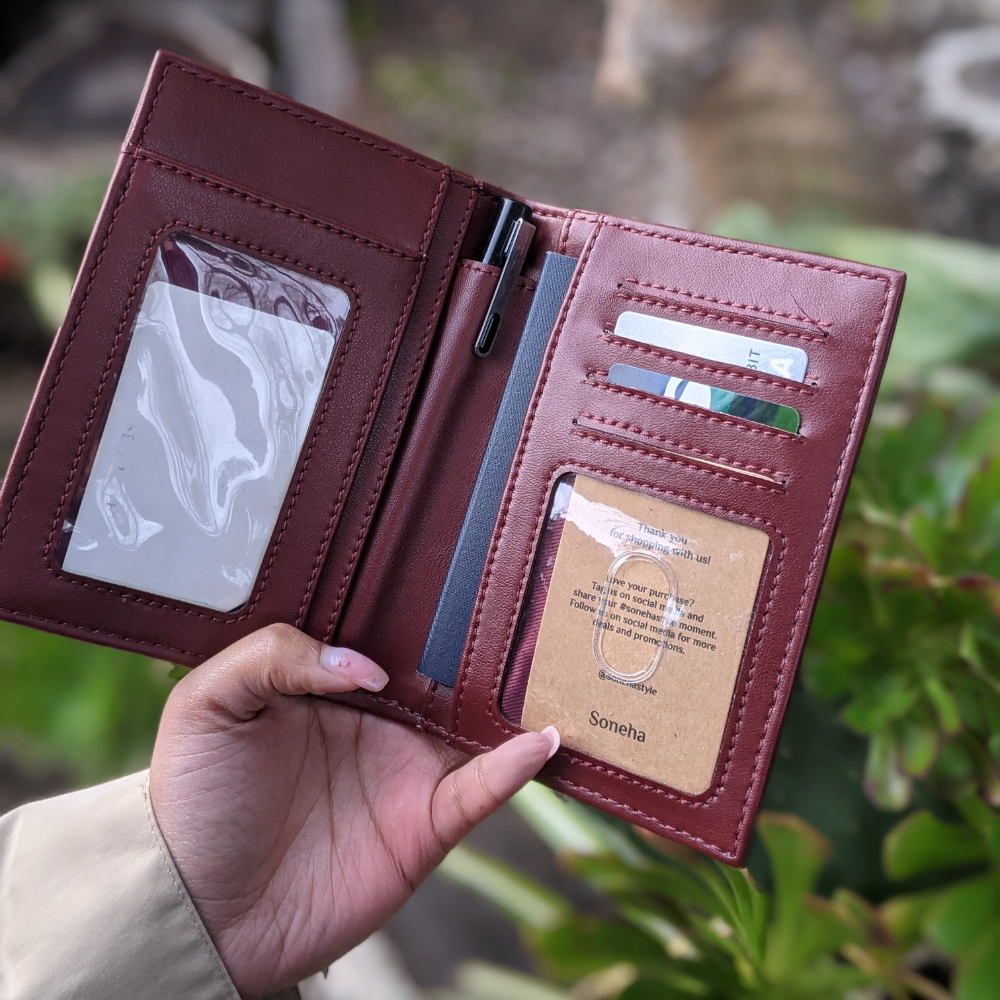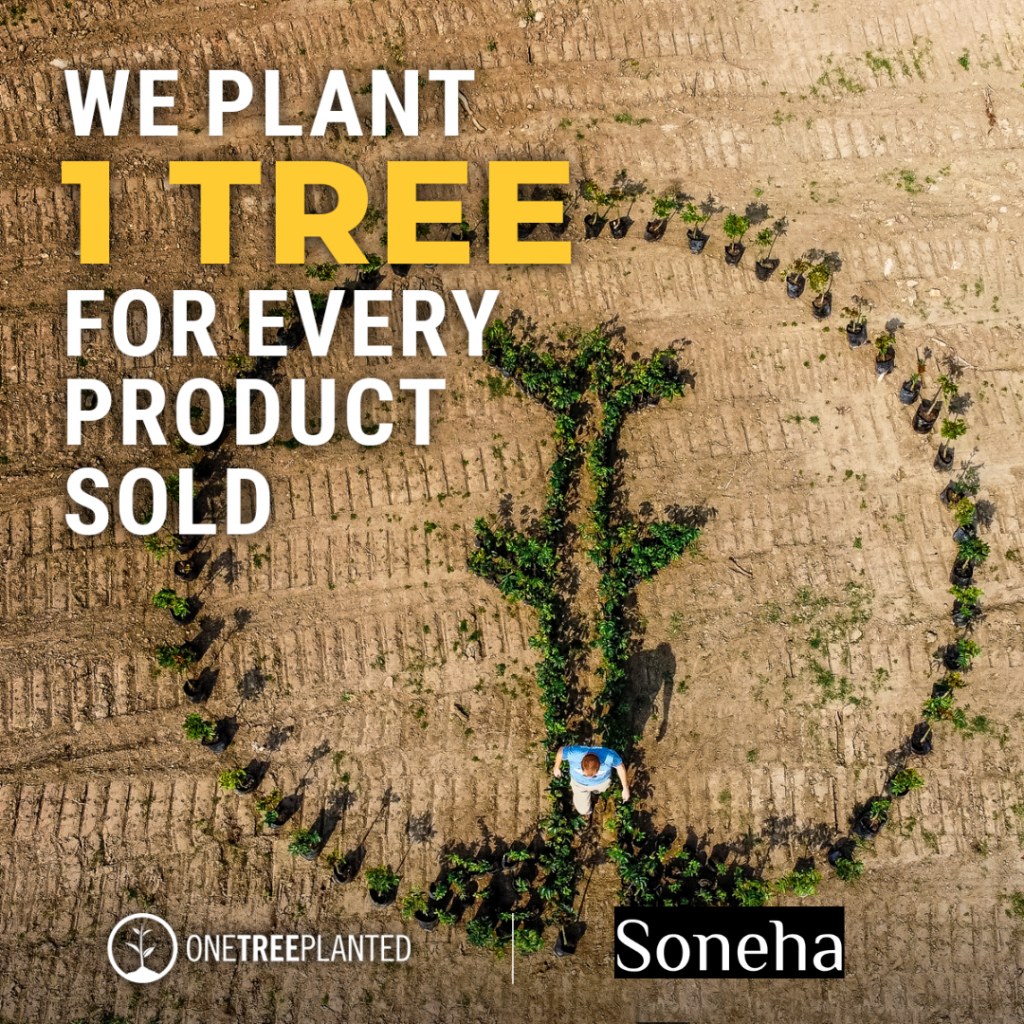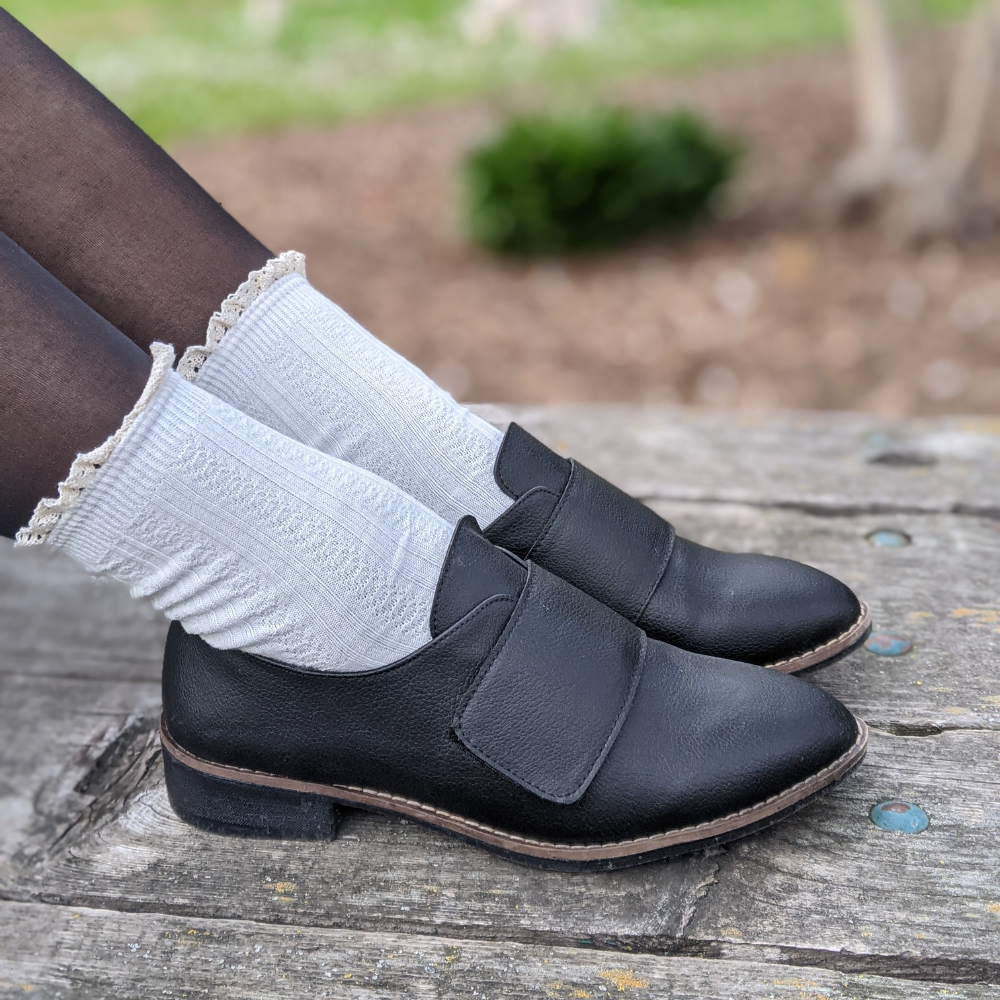Written by Sason Bishope Parry

In the world of fashion, animal skins and fur have been a big commodity for aeons, from leather jackets, shoes, and bags to snakeskin boots and fur coats. Sadly, trillions of animals have died for the shoes most people still wear today. The good news is times are changing, and many creative entrepreneurs and designers are finding new ways to create cruelty-free, fashionable products. One such designer is Nimreet Grewal, founder of SONEHA, a new, cruelty-free, sustainable fashion company. Soneha has been called a driving force for transformation with Nimreets forward-thinking materials she utilizes with every creation. Coming from an East Indian background, Nimreet adopted veganism quite early. Once she realized the plight of animals and after doing lots of research, she adopted a fully vegan lifestyle and hasn’t looked back since. One day, while learning her cousin with Down syndrome was having a tough time finding vegan dress shoes that he could independently wear, inspiration struck. She realized there was a need for cruelty-free shoes, so the brand Soneha was born.
Soneha’s debut collection launched in 2021 and featured easy on & off shoes and minimalistic accessories made from organic cactus leather. Yes, Cactus leather! Soneha’s primary mission and aim became to empower people to express their individuality through vegan fashion. The creative founder’s reach goes beyond just business. With over seven years of committed United Nations volunteering, driving global progress and locally in the Bay Area, being an advocate for climate change action, Nimreet is all hands-on in making a difference. Through community engagement and tireless advocacy, Nimreet has played a pivotal role in raising awareness about the urgent need for sustainable practices and nature preservation at local levels. If that wasn’t enough, Nimreet also works as a behavioural therapist.

As Nirmreet describes, Soneha is a plant-based leather accessories brand committed to promoting accessible vegan, sustainable living. Beyond being a cruelty-free fashion brand and helping save animals’ lives, Soneha also gives back by planting one tree for every order purchased. Soneha motivates consumers to contribute to a greener and kinder future through their purchases. Customers can feel good about wearing and using fashionable products, from shoes to wallets to bags and other accessories, knowing that no animals were harmed and they are doing their part for a sustainable future.
I recently had the opportunity to sit down and chat with the inspiring and creative Nimreet Grewal about veganism and her forward-thinking vegan fashion company, SONEHA.

Sason Bishope Parry: How are you, and how is life?
Nimreet Grewal: I am doing great, and life has been filled with excitement lately. Balancing a day job while launching a new company has been quite an adventure. I’m grateful for this opportunity to chat with you today.
SBP: Are you vegan, and if so, when did that journey start?
NG: Yes, my journey started around 5-6 years ago. I was inspired by a few of my friends who have been plant-based and vegan for health reasons. I delved deeper into educating myself about veganism and plant-based lifestyle. This led me to fully embrace veganism for my beliefs regarding animal well-being. I would say that changing my diet was the easiest aspect of being vegan. The real challenge lay in transitioning to a full vegan, cruelty-free lifestyle, which included everything from cleaning supplies and clothes to beauty products and accessories.
SBP: Tell us about your fashion company SONEHA?
NG: Soneha started as a passion project for my cousin with Down syndrome, who needed help finding vegan dress shoes he could wear independently. I designed a successful, lightweight shoe with a velcro strap using cactus leather. This success led to the founding of my new company, Soneha, which now offers wallets in addition to shoes. I launched the company in November 2021 through a crowdfunding campaign on Kickstarter and was able to raise enough funds for my first production run. This year, I secured PETA certification for all the products.
SBP: Are you the sole designer, and did you go to school for fashion?
NG: Yes, I am the sole designer, and no, interestingly, I did not go to school for fashion design. Currently, I work as a behavioural therapist for children with disabilities. Before this, I worked in financial statement audits. I also hold a BA degree in business economics. After a few years in the field, I realized that my heart was elsewhere. So, I trained to become a behavioural therapist for children with disabilities to help them express themselves better.
SBP: You could have gone the path of other designers, but you decided to make your products from 100% vegan materials?
NG: Absolutely, I was committed to ensuring that my products were not only 100% vegan but also adhered to the highest standards of ethics and sustainability. In my view, as we entered 2021, it was crucial to consider all facets of coexisting on this planet – from the well-being of animals to the preservation of our environment and upholding the rights of workers. Currently, I only work with small artisan-owned handmade workshops in Mexico and India, where we produce in small batches to reduce waste as well. It did take me longer to put all this together, I do have to agree. I had a lot of failed production samples, and many factories lied about their workers’ rights and whether they were using 100% vegan materials or not.
SBP: Cactus leather is an exciting new vegan leather that you use, tell us about it and how it’s different from ordinary animal leather.
NG: Cactus leather is a plant-based alternative to traditional animal leather. It is made from nopal cactus leaves and requires significantly less water and land to produce. Mature leaves from the cactus are harvested and processed. Cactus leather is vegan and cruelty-free, as well as more sustainable than animal leather. Also, it does not involve the use of harmful chemicals in its processing, which can be detrimental to the health of leather factory workers in the case of traditional animal leather. In terms of feel, cactus leather is soft to the touch and can last up to 10 years when properly cared for.
SBP: Besides Cactus leather, are there other vegan materials you use?
NG: Yes, we use organic cotton as liners for wallets and recycled natural rubber soles for our shoes. As for our packaging, we opt for recycled craft paper and cotton dust bags. Currently, we’ve introduced a new wallet made from coconut leather. This material is a recent development crafted from agricultural waste in the coconut industry. The material is also fully biodegradable.
SBP: What is the importance and message of sustainable vegan fashion?
NG: I would say that sustainable vegan fashion carries a powerful message: that style and ethics are not mutually exclusive. It celebrates a style embedded in compassion, ethical practices, and consciousness. This movement is crucial as it promotes animal welfare and eliminates the need for harmful practices in the fashion industry. It also drives innovation in plant-based materials.
SBP: Have you run into any challenges or naysayers pushing vegan fashion?
NG: Yes, I’ve encountered naysayers quite frequently, which was unexpected when I first started out. It’s still surprising to me that even now, I receive messages on social media from random individuals expressing unwarranted negativity or making unnecessary comments. I have met quite a few people at in-person markets as well. One amusing incident was when I launched my Kickstarter campaign. I decided to run a Facebook ad myself while not knowing much about it at the time. Strangely, the ad missed the intended audience. This resulted in a flood of negative comments and messages. I’m actively working on not letting these experiences affect me. One thing I’ve learned is the importance of a strong support system. Connecting with like-minded individuals and fellow business owners has been invaluable. Their encouragement and shared experiences have been a guiding light through the ups and downs of this journey.
SBP: What direction do you think the fashion industry is heading?
NG: I would say that the industry is gradually shifting towards greater cruelty-free practices and increased transparency. Today’s consumers are demanding more vegan and eco-friendly options. This growing demand is not only reshaping products but also driving innovation in vegan and sustainable materials. Companies that embrace these values are contributing to a more compassionate future. It’s an exciting time to witness and be a part of this positive transformation.
SBP: What is your favorite vegan food and product?
NG: My favourite vegan food is Rajma Chawal, a traditional Punjabi bean and rice dish. I grew up eating it, and it is my go-to comfort food. In terms of product, my favourite product is our new coconut leather wallet.
SBP: Who inspires you most?
NG: I would say my inspiration comes from the fantastic community that surrounds and
supports me in my vision. The kind and encouraging words received from community members continue to push me forward and energize me. When I see how passionate everyone is about our shared cause, it’s a constant reminder of the positive impact we can achieve together.
SBP: What’s next for Nimreet Grewal and SONEHA?
NG: In the coming years, my vision for Soneha is to foster a vibrant community around it and encourage more people to join our cause. I recently started being a vendor at different Bay Area markets and have met incredible people and other awesome business owners. I am working on reaching a wider audience that shares Soneha’s values. I also want to expand my product line to offer an array of exciting vegan options and team up with like-minded organizations to promote further vegan and sustainable fashion causes.

FOR MORE INFO ON SONEHA:
Website: https://www.soneha.com/
Instagram: https://www.instagram.com/sonehastyle/
Tik Tok: https://www.tiktok.com/@sonehastyle
Facebook: https://www.facebook.com/Sonehastyle/
